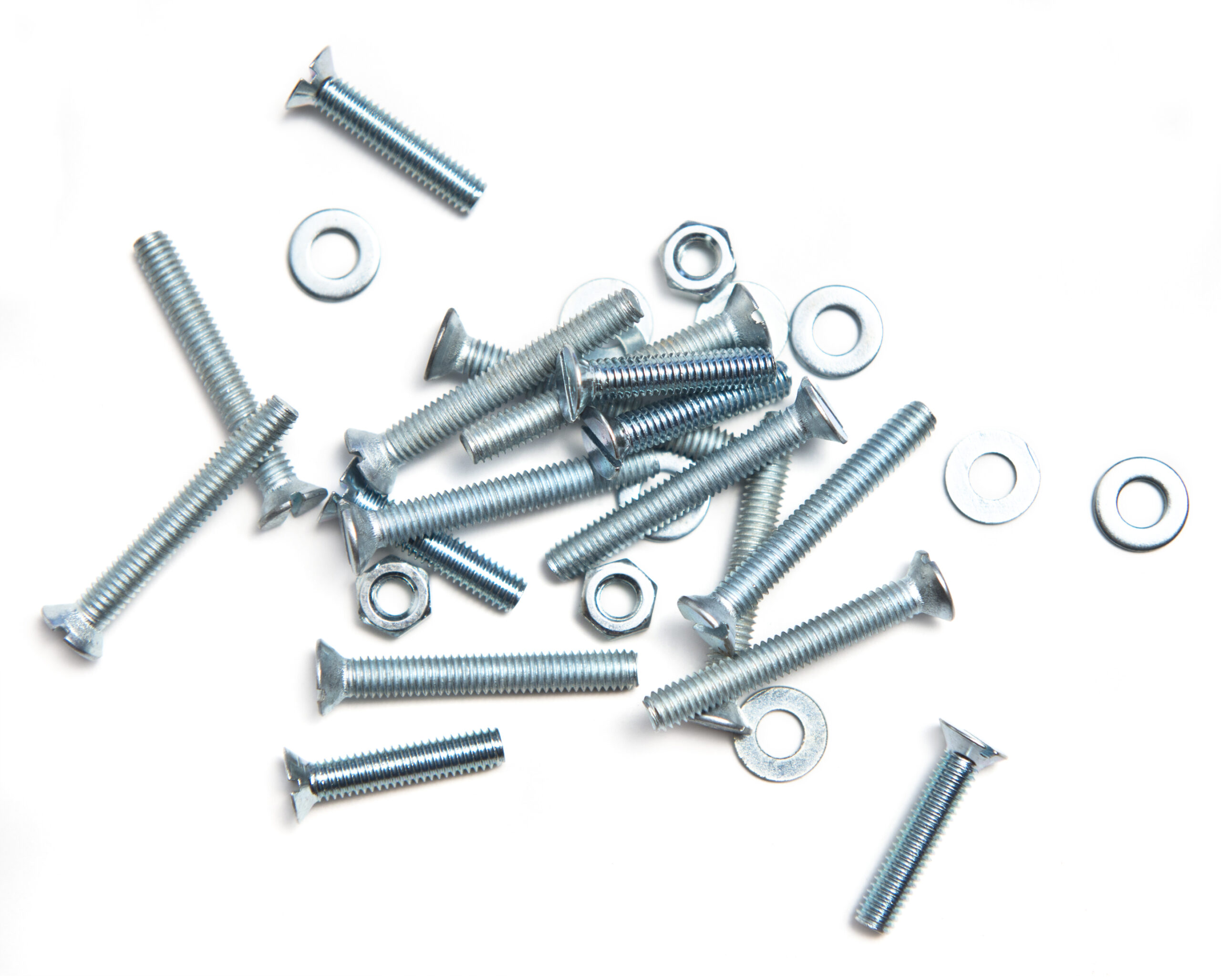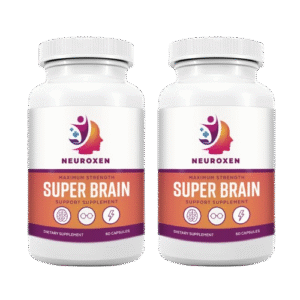Beginner’s Guide to Industrial Nuts and Bolts: Types, Grades, and Uses
Nuts and bolts are hardware fasteners mainly used in industries such as construction, automobile and manufacturing. Although nuts and bolts...

Nuts and bolts are hardware fasteners mainly used in industries such as construction, automobile and manufacturing. Although nuts and bolts might seem small, they are essential. Even though they may look simple, they play a crucial role in holding buildings, machines, cars, and even bridges together. They are made in a special way to handle heavy weight, heat, and shaking.
Nuts and Bolts are of various types, and they might confuse you, especially if you are new to them. But once you know the basics, it’s easier to pick the proper nut or bolt for your work, whether it’s a big factory job or maybe you are just learning something new.
This guide will explain what nuts and bolts are, the types available, the materials they are made from, and their applications.
What Are Nuts and Bolts?
Bolt
A bolt is a metal rod with threads (like a spiral groove) on the outside and a head on one end. It goes through a hole and is held in place by a nut on the other side. Bolts create a tight grip when screwed in. Some bolts have threads along the whole body, while others only have them partway. Their heads come in different shapes, like hex (6 sides), flange, or socket. Bolts are used in buildings, cars, machines, and metal works because they are strong and dependable.
Nut
A nut is a small piece with threads on the inside. It fits with a bolt to hold things tightly together. When you twist the bolt, the nut moves along the threads and presses everything into place. Nuts come in many shapes and have different features. Some are simple, while others, such as nyloc or flange nuts, prevent them from coming loose. Nuts and bolts can be easily taken apart, which helps with repairs or changes.
Types of Industrial Bolts
There are many kinds of bolts. Each one is made for a different type of job. Knowing the right bolt helps you do strong and safe work.
Hex Bolt
Hex bolts have six-sided heads. They are the most common type and are used where a strong hold is required, such as in buildings and machines. They come in different strength levels like 8.8, 10.9, or 12.9 and may be fully or partly threaded.
Carriage Bolt
These have a smooth, round head and a square part just under it. This square section stops the bolt from turning when you tighten the nut. They are mostly used in wood, fences, and furniture for a neat look and safety.
U-Bolt
U-bolts are shaped like the letter “U” with threads at both ends. They are used to secure round objects, such as pipes, to flat surfaces. You’ll find them in plumbing, vehicles, and boats.
Eye Bolt
Eye bolts are a special type of bolt that features a ring-shaped head at the end, resembling an eye. This loop is convenient for use when lifting and pulling, especially when attached to ropes, cables, and chains.
Flange Bolt
Flange bolts have a circular flange under the head that acts like a washer, spreading out the pressure and eliminating the need for a separate washer. They are used in cars and heavy machinery to prevent shaking and maintain tightness.
Anchor Bolt
Anchor bolts fix things to concrete. They are placed in wet concrete and typically have a bent end, allowing them to stay in place once the concrete dries. They are used in buildings, poles, and heavy structures.
Types of Industrial Nuts
Nuts are made to fit bolts. They come in different shapes for different uses. Selecting the proper nut helps the bolt perform its job effectively.
Hex Nut
Hex nuts are six-sided and very common. They work with hex bolts and are used in machines, cars, and buildings. They also come in different strengths and coatings.
Nyloc Nut
These nuts have a small nylon ring inside. This allows them to grip the bolt tightly, preventing it from loosening due to shaking. They are used in cars and planes. But they’re not good for very hot places.
Flange Nut
Flange nuts have a wide base, similar to a built-in washer. This spreads the load and keeps surfaces safe from damage. They are great in machines and vehicles where shaking is a problem.
Wing Nut
Wing nuts have two “wings” on the side, so you can turn them with your fingers. They are used in places where you need to tighten or loosen things often, without tools.
Square Nut
These nuts have four sides. They provide a more secure grip than round ones and are often used in woodwork or to achieve an old-fashioned look.
Barrel Nut
Also known as cross dowels, barrel nuts are round and feature a hole through their side. They are used in furniture to make strong, hidden joints.
Rivet Nut
Rivet nuts are used in thin materials, such as metal sheets. They provide a clean and sturdy housing for bolts and screws to connect when the material is too thin. Fixed from one side only and are used in cars, panels, and boxes.
Materials Used in Nuts and Bolts
The material used in nuts and bolts is key holders of how a nut or bolt will perform. It reveals the strength of nuts and bolts, their durability, and the cost associated with them. Here are the most common materials:
Carbon Steel
This is the most common material. It’s strong and inexpensive, but it can rust without a coating. Used in cars, machines, and buildings.
Stainless Steel
It doesn’t rust easily and works well in wet places. It’s also non-magnetic. Used in boats, food factories, and hospitals.
Brass
Brass doesn’t rust and conducts electricity well. It’s used in plumbing, wiring, and furniture. It appears to be gold, but it doesn’t sparkle.
Aluminum
Aluminium is light and resists rust. It’s used in light machines, electronics, and aeroplanes. But it’s not suitable for heavy loads.
Alloy Steel
Alloy steel is mixed with metals like chromium and nickel to make it extra tough. It’s used in planes, cars, and big machines.
Important Applications Across Industries
Nuts and bolts are used in almost every industry. Here’s how different fields use them:
Automotive Industry
Cars and trucks use bolts and nuts to hold the engine, body, and wheels together. Special bolts are used to stop parts from shaking loose.
Construction Industry
Buildings, bridges, and railways use nuts and bolts in their frames and joints. They need strong and rust-proof ones to last long.
Furniture Industry
Furniture utilises special fasteners, such as barrel nuts and carriage bolts, to maintain its appearance and structural integrity. They’re also easy to take apart.
Aerospace Industry
Airplanes need fasteners that are both light and very strong. Stainless steel and alloy bolts are used here.
Energy Sector
Wind turbines, solar panels, and oil platforms use high-quality bolts that can handle rough weather and heavy movement.
Factors to Consider When Choosing Fastener Manufacturer in India
India makes a lot of nuts and bolts. If you’re buying from an Indian company, here’s what to check:
Certifications and Quality Standards
Select companies that hold certifications such as ISO 9001 or ASTM. This means they make quality products.
Material and Grade Options
A good company offers a variety of materials and strength levels. This helps you get exactly what you need.
Customization and Production Capabilities
If you require special sizes or finishes, opt for a company that can manufacture custom products in-house.
Logistics and Delivery Timelines
Select a company that consistently delivers on time and manages packaging and shipping efficiently.
Pricing Transparency and Volume Flexibility
Look for fair prices, clear quotes, and bulk discounts. Some good companies also offer long-term deals.
Conclusion
Nuts and bolts may look simple, but they hold up the biggest and most important machines and buildings.
When you understand the types, materials, and their applications, you can make more informed choices. Whether it’s for a factory, a house, or a car, the right fastener makes your job safer and better.
Always buy from a trusted manufacturer that gives you strong, reliable, fasteners made with care. In the end, the strength of anything you build starts with the small parts that hold it all together.



